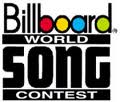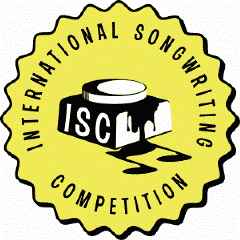|
Introduction by Jim Liddane
One non-national song contest which has stood the test of time, is the John Lennon Song Contest, which attracts entries from songwriters all over the world, is now firmly established as one of the leading international songwriting contests.
The contest which began in 1997, is open to amateur and professional songwriters who submit
entries in any one of 12 categories. The JLSC is open year-round and features two Sessions, one usually closing in June and the other in December, with 72 Finalists, 24 Grand Prize Winners, 12 Lennon Award Winners and 1 Maxell Song Of The Year winner.
Songwriters do not need a professional recording. Entries are judged on originality, melody,
composition, and lyrics (when applicable).
Songs may be entered in any of the following categories:
Rock • Country • Jazz • Pop • World • Rhythm & Blues • Hip Hop • Gospel/Inspirational • Latin • Electronic • Folk, and Children's.
Unusually, instrumental compositions are encouraged.
40 Contests Now Open To Songwriters Worldwide
Over three dozen international songwriting contests take place each year, ranging from the USA to Ireland.
Most of the modern songwriting contests are open to overseas entries, apart from those national competitions arranged country-by-country for participation in the annual Eurovision Songwriting Contest, which is the largest and most successful songwriting contest held in the world.
The Eurovision Song Contest was founded in 1956 with just seven countries paricipating, but
since then, every European nation or state (with the sole exception of Vatican City), has
at some stage participated.
Apart from the Eurovision, contests can be divided into two types - those organised to
publicise a particular place or product (such as the San Remo Festival or the Avon
Cosmetics Song Contest), and those organised purely as businesses, by private
individuals or corporations.
In general, contests can be a means of entry to the real world of songwriting (Abba made
their international debut on the Eurovision), and some of them do offer very
substantial cash prizes.
The high-cash operations are in the main, well organised, usually boasting a panel of
independent judges and backed by sponsors who exercise some control over the operation.
They are of course, business operations, existing for profit, aiming to accumulate
enough income to pay out the promised prize money at the end of the day.
Others frankly, are little more than glorified lotteries where X+ dollars are earned in
entry fees, and X dollars are paid out in prizes, and serious questions have been raised
by songwriters concerning the integrity of some of the judging.
Finally, over the last 50 years - we have recorded three contests which opened, took entries (and entry fees!), and failed to announce any winner at all.
In other words - shop around!
If you are thinking of entering a contest, do remember that few produce cutting-edge winning songs. Indeed, even the prestigious Eurovision itself often throws up winning songs which could very well have won the prize thirty years ago.
So if you are looking at a contest, see if their page lists last year's winning song, and have a listen to that first. Many contests use the same judges year after year, and so the type of song which is victorious this year, may sound not all that unlike last year's winner, and so on.
Finally, if you are organising a song contest - why not contact the ISA?
We will be happy to advise, and indeed to publicise the contest once we have seen
the rules and conditions of entry.
Some Tips For Pening A Winning Song
Winning a songwriting competition is challenging but achievable with a well-crafted song that resonates with people and showcases originality, relatability, and strong musicality. Here’s a step-by-step guide on creating a competitive song.
Identify Your Hook
Find a unique idea or phrase that will catch listeners' attention immediately, often called the "hook." It could be a catchy lyric, a unique melody, or an unexpected chord progression.
Aim for Something Memorable Yet Not Overused.
If your song is about love, for example, try a fresh perspective, like unrequited love from a friend’s point of view or a love song with an unconventional setting.
Write Compelling Lyrics
Be relatable yet specific: Winning songs are often relatable but specific enough to create vivid imagery. Instead of generic lines, give your lyrics a twist with concrete details.
Use Strong Imagery and Storytelling
Describe scenes, emotions, or actions vividly. Paint pictures with your words. Instead of saying "I miss you," try, "I miss the coffee stains on your shirt."
Add Emotional Depth
Songs that convey universal themes like love, loss, ambition, or resilience often stand out, especially if they evoke an emotional response in listeners.
Develop a Memorable Melody
Keep it simple, yet fresh: A good melody is easy to follow but has something unique about it. Try changing up the rhythm of the notes, adding unexpected intervals, or using syncopation.
Focus On The Chorus
The chorus should be catchy, singable, and able to stay in people’s heads after one listen. It should be the song's emotional or energetic peak.
Structure The Song for Maximum Impact
Use an effective song structure: Common structures (like Verse-Chorus-Verse-Chorus-Bridge-Chorus) help create tension and release, crucial for holding attention.
Build Anticipation
Allow your verses to lead to the chorus naturally. Each section should have a purpose, whether it’s to build emotion, release tension, or transition smoothly.
Focus on Production and Arrangement
Add layers gradually: A well-arranged song typically builds as it progresses. Consider adding new instruments, harmonies, or subtle effects like reverb to keep the listener engaged.
Avoid Overproduction
Especially for competitions, clarity is crucial. Make sure the vocal and main melody are easy to hear. Some competitions also prefer acoustic or minimally produced versions to focus on songwriting.
Polish Your Lyrics and Melody
Edit rigorously: Avoid filler words or unnecessary lines. Every word, note, and chord should have a purpose. Read the lyrics aloud and listen critically to the melody.
Ask For Feedback
Play your song for others or get feedback from other songwriters. If something doesn’t hit right, don’t be afraid to rewrite.
Convey Authentic Emotion and Performance
Sing with feeling: Even a strong song can fall flat without an emotive performance. Practice delivering the song with energy and authenticity.
Let Personality Shine
Judges often look for authenticity, so bring out your unique style, whether it’s in your vocal delivery, lyrics, or instrumentation.
Match the Tone and Theme to the Competition
Research the competition’s past winners: Every competition has a certain vibe or set of themes that resonate with its judges. Tailor your song to fit while keeping your voice unique.
Record a High-Quality Demo
Even if it’s simple, ensure it’s clean and conveys the song’s full potential.
Submit On Time And Follow All Rules
Competitions can be strict with guidelines. Be sure to follow all submission instructions.
Good luck!
A Few Contests To Look At!
What follows is a list of song contests which operated during the last year. But it comes with a health warning!
The fact that a contest operated last year does not necessarily mean that it will operate this year. Some contests "take a break" for a year or so, never to return again, while others "take a break" only to come back the following year bigger and better than ever.
And sadly, although it is very rare, there have been cases of contests which accepted entries - but failed to ever announce a winner!
In other words - this is purely a historical list. The future sadly, we cannot predict.
In any event, would you like to help us?
If you find that a contest is no longer operating, or has changed its "usual closing date", or if you know of a new contest worth adding to the list, could you let us know?
Simply email us any info you have to
internationalsongwriters@gmail.com
Unsigned Only Song Contest
https://www.unsignedonly.com/
Usual Closing Date: January
Write Out Loud Song Contest
www.writeoutloudcontest.com
Usual Closing Date: February
Talent Is Timeless Song Contest
https://www.talentistimeless.com/
Usual Closing Date: March
European Songwriting Awards
www.europeansongwritingawards.net
Usual Closing Date: April
Indie International Song Contest
https://indieinternational.com/
Usual Closing Date: April
Podunk Bluegrass Song Contest
https://podunkbluegrass.com/songwriters-contest/
Usual Closing Date: May
West Coast Song Contest
https://www.westcoastsongwriters.org/song-contest
Usual Closing Date: May
USA Songwriting Competition
https://www.songwriting.net/
Usual Closing Date: May
JLSC John Lennon Song Contest
https://jlsc.com
Usual Closing Date: June
Song Of The Year Song Contest
https://www.songoftheyear.com/
Usual Closing Date: July
NewSong Song Contest
www.newsong-music.com/contest
Usual Closing Date: September
International Songwriting Competition
https://songwritingcompetition.com/
Usual Closing Date: September
Mid Atlantic Song Contest
https://saw.org/masc/
Usual Closing Date: September
Dallas Song Contest
https://dsasongcontest.blogspot.com/
Usual Closing Date: September
IAMA International Acoustic Song Contest
https://inacoustic.com/
Usual Closing Date: November
SongDoor Song Contest
https://www.songdoor.com/
Usual Closing Date: November
Great American Song Contest
https://www.greatamericansong.com/rules.php
Usual Closing Date: November
NSAI Nashville Songwriters Song Contest
https://www.nsaisongcontest.com/
Usual Closing Date: November
Christmas Song Competition
https://www.songwriting.net/xmas
Usual Closing Date: December
JLSC John Lennon Song Contest
https://jlsc.com
Usual Closing Date: December
Copyright Songwriter Magazine, International Songwriters Association & Jim Liddane: All Rights Reserved





ISA • International Songwriters Association (1967)
internationalsongwriters@gmail.com

Cookies Policy • Privacy Policy • Copyright
Legal Notice
This site is published by the International Songwriters Association, and will introduce you to the world of songwriting. It will explain music business terms and help you understand the business concepts that you should be familiar with, thus enabling you to ask more pertinent questions when you meet with your accountant/CPA or solicitor/lawyer.
However, although this website includes information about legal issues and legal developments as well as accounting issues and accounting developments, it is not meant to be a replacement for professional advice. Such materials are for informational purposes only and may not reflect the most current legal/accounting developments.
Every effort has been made to make this site as complete and as accurate as possible, but no warranty or fitness is implied. The information provided is on an "as is" basis and the author(s) and the publisher shall have neither liability nor responsibility to any person or entity with respect to any loss or damages arising from the information contained on this site. No steps should be taken without seeking competent legal and/or accounting advice
Home •
Interviews •
Writing A Song •
Obituaries
|